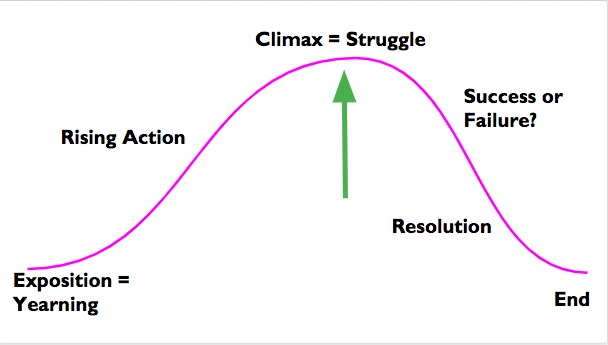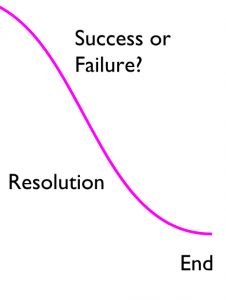 At the Upper Division Parents’ Night in September, Upper Division Head Caroline Beasley presented her take on the crux of adolescence and why Park is uniquely positioned to nourish this vulnerable age. The following is a transcription of sorts:
At the Upper Division Parents’ Night in September, Upper Division Head Caroline Beasley presented her take on the crux of adolescence and why Park is uniquely positioned to nourish this vulnerable age. The following is a transcription of sorts:

When thinking about human development – especially adolescents in their middle school years – I am reminded of a typical English 101 narrative arc. The narrative arc begins with exposition, an introduction of the setting and characters. I liken this to the early years in school, where children’s strengths and weaknesses are first discovered and we begin to understand what works for them in the ways of teaching and learning. As we move towards adolescence, we experience rising action, where we begin to see emerging conflict. Struggles with teaching and learning begin to have consequences, either internally or externally. Next comes the climax, which is when a child’s weakness and those internal or external consequences present a series of conflicts that leave the audience (that’s us) wondering what will happen next.
At this point in a typical narrative, the protagonist is faced with a series of choices that will define her character and determine her future. In adolescence, children are going through major shifts in their physical, social, emotional, and cognitive development. Physically, an adolescent body is changing from something that was once familiar to something that feels downright bizarre. Socially, adolescents are sorting their way through friendships that previously felt fixed, but now seem to fluctuate. Emotionally, they move from steady to wobbly emotions that change every day. Cognitively, the brain is grappling with sorting out how concrete concepts have suddenly become abstract. It is through navigating these choices that the child learns about what works and doesn’t work as a person, student, and friend. Recognizing the purpose and importance of struggle can help us honor, or even celebrate it.
When I looked up the etymology of adolescent, I found that it is derived from the Latin root alere, which means to feed or nourish. Here in the Upper Division, we know how to nourish adolescents during this vulnerable time. We know that children ages 11-15 are governed by four dominant needs: competence, relationship, autonomy, and fun. When these needs are thwarted in school, students experience frustration and a dip in confidence and motivation. But when these needs are met, adolescents engage with rigorous learning and thrive. Our work as middle school educators is to provide a platform for our students to develop intellectual passions and mastery of skills; seek appropriate and supportive relationships; and find positive ways to be in control and to have fun.
Park’s Upper Division is intentionally designed to meet the needs of adolescents. Competence is cultivated through academic rigor and opportunities for students to demonstrate mastery of content and skills. Our advisory program provides a place for building strong relationships and cultivating a healthy and positive school culture. Students are given ample opportunities to develop their autonomy and explore their passions through clubs, a robust travel program, and curricularly-based authentic projects. During this developmental phase that is often characterized as turbulent, we intentionally strike a balance between academic rigor and creative exploration; high expectations and emotional support; preparing for the future while preserving the simplicity and sincerity of childhood. Lastly, fun – here at Park, we believe in keeping school joyful. These are the reasons why Park graduates excel in their next steps on their journey: the falling action and finally the resolution.

The falling action in the narrative arc is when we see the protagonist begin to find her way out of conflict. Through trial and error, adolescents learn who they are as individuals and what they need to succeed. This is exactly where we want our Grade VIII students to be as they enter secondary school. Park’s Upper Division program provides adolescents exactly what they need to slide into the resolution of their developmental arc. This is the end of the story when the main problem has been resolved.
Still, we know that Park’s Graduation Day does not mark an ending, but rather a beginning. It’s a day we celebrate with an eye to the past and to the future. For Park graduates and for us all, there’s always a sequel, another battle to fight, another villain to overcome, and another fear to conquer. While we’ll never be able to guarantee that the journey will be easy, we can offer wholehearted partnership and guidance along the way!
The concept of the adolescent needs of relationships, competence, autonomy, and fun are drawn from the book, Classroom Discipline: Guiding Adolescents to Responsible Independence, by Linda Crawford and Christopher Hagedorn. (The Origins Program, 2009.)





